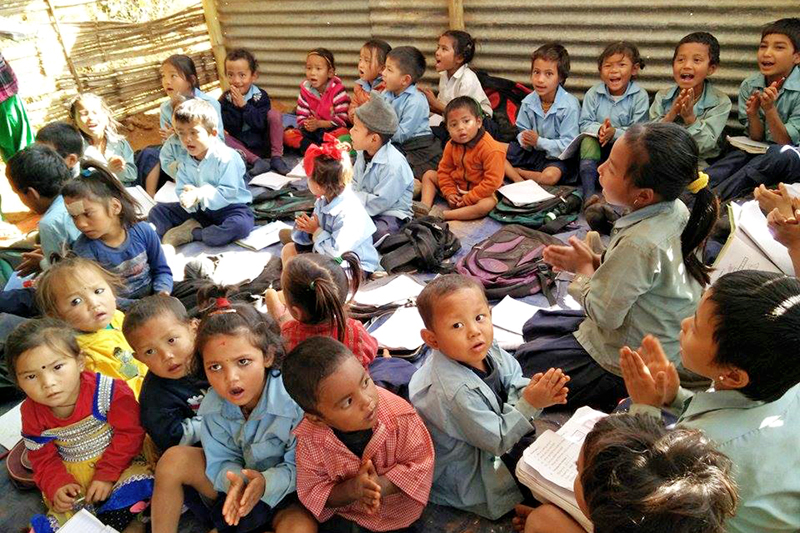EU, UNICEF launch €4 mln project to restore education for 1 mln quake-hit kids in Nepal
KATHMANDU: The European Union (EU) and the United Nations Children’s Fund (UNICEF) have joined hands to launch a multi-million rupees project to help Nepal restore education for one million children in nine districts affected by the devastating earthquakes in April and May last year.
The project worth 4 million Euro (~Rs 469.5 million) will include construction of 650 transitional learning centres, provision of essential learning materials in all newly established centres as well as psychosocial counseling training to teachers in collaboration with the Department of Education and the concerned district administrations and NGOs, the EU and UNICEF said in a statement on Tuesday.
The project will be launched in Gorkha, Kavrepalanchok, Makawanpur, Nuwakot, Okhaldhunga, Ramechhap, Rasuwa, Sindhuli and Sindhupalchok districts that were badly hit by the April 25 earthquake and its powerful May 12 aftershock.
Thousands of buildings including schools were damaged in western, central and eastern districts of Nepal in the temblors that killed 9,000 people last year.
“Over the years, Nepal has made significant educational gains, including the nearly 100 per cent primary enrolment rate,” said Rensje Teerink, Ambassador, European Union Delegation to Nepal. “These gains are at a risk today, especially with massive damages to schools and classrooms during the Nepal earthquakes.”
A structural assessment of all schools in the 14 most affected districts found that over 34,500 classrooms were damaged or destroyed beyond use, affecting the education of one million children.
“Collective efforts are needed so that all kids have decent learning opportunities to avoid negative long term effects of the 2015 disaster. The EU-UNICEF partnership seeks to help restore the education of these children by assuring safe learning environments and emotional support for them,” said Teerink.
The new centres will include corrugated galvanised iron sheets for the roof, improved walls, gender-friendly latrines, hand-washing facilities and provision for drinking water.
The semi-permanent structures are expected to last for at least the next two years, until more permanent structures for schools can be built.
The learning environment of the earthquake-affected children will be further enhanced with provision for early childhood development and educational materials in all the newly established centres. In addition, 1,300 teachers will be trained on providing effective psychosocial counseling to the students.
“In the last nine months, UNICEF has been working very closely with the Government and partners to minimize the disruption to schooling in the earthquake affected districts by helping to resume classes as soon as possible in schools and temporary learning centres,” said Tomoo Hozumi, UNICEF Representative to Nepal.
“We look forward to the new partnership among the Government of Nepal, EU and UNICEF to further enable us to support the efforts to build back better the education system.”






